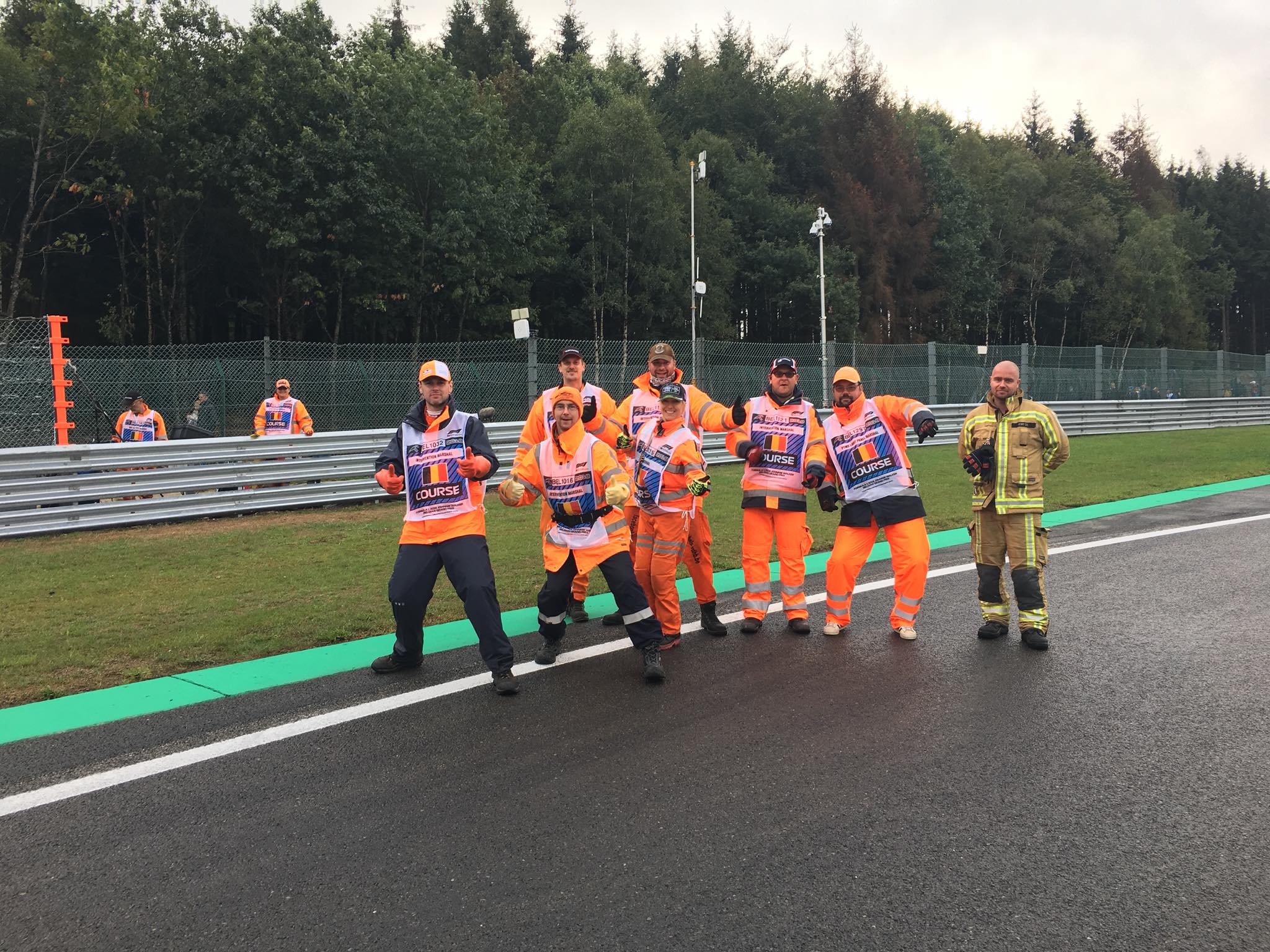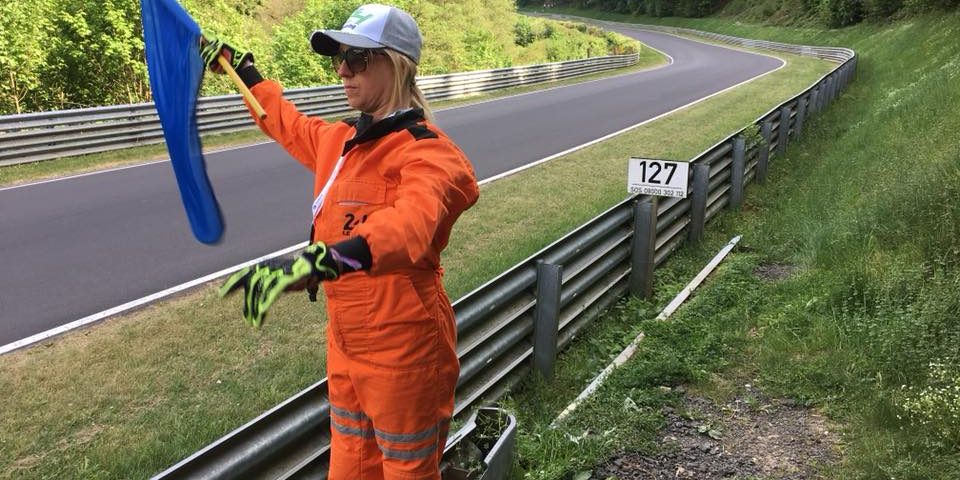By Duurt Dijkman – Founder at MsportXtra
Being a marshal is often looked at as an underrated job, which is done mainly by many volunteers. But if they are not around the track, not one race could be run as the marshals are essential for many different reasons and not just for waving a flag or recover a car. I got in touch with a couple who are both working as a marshal at a number of different tracks. Kim Ellis and Rafaël Slechten are followers of my MsportXtra account on Twitter, so asking them for a Q&A was a no-brainer for me. They were kind enough to answer my questions so enjoy an inside look of what it means to be a marshal.
“Marshals are not just for waving flags”
Q1. What made you two become marshals ?
“‘The first race that I ever attended was also the first race that I ever marshalled.”
Q2. Taking a race at Spa-Francorchamps or the Nürburgring, what do you both need to do to prepare for such a long weekend ?
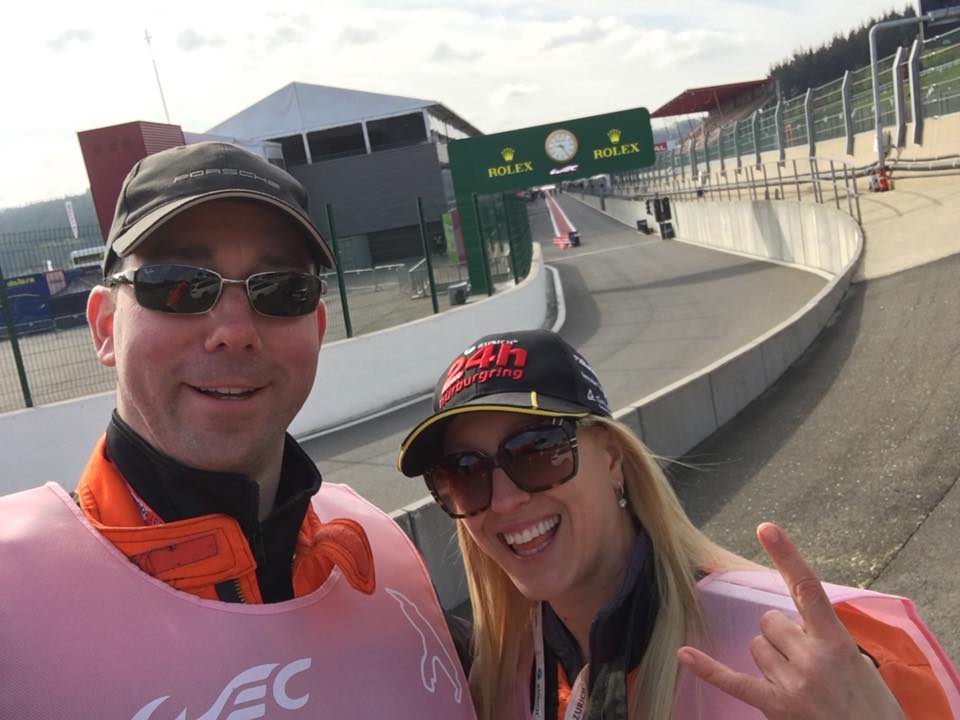
Q3. What kind of qualifications or certificates do you need to have as a marshal and are there grades for different circuits or racing categories ?
Q4. When marshalling a 24 hour race, you also need to eat and sleep. How are the arrangements for marshals or do you have to get that sorted out yourself ?
Q5. With social media being such a large part of motor racing these days, is it helpful for you both when being at a marshal post? Checking live timing or a livestream when something happened somewhere else on track ?
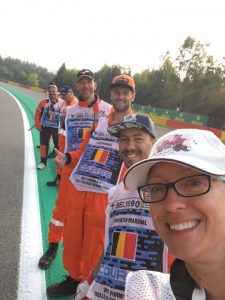 Kim – Technically we are not allowed to use our phones on post, with very good reason. We need to have our eyes on the cars. However, that said, I will often pull up the live timing just before the cars come on track and will check it during intervals when there are no cars coming by. Or someone who is on post, but not on shift, will use it to keep track of the cars and they will keep those of us who are on shift well-informed. Especially in the longer endurance races, the live timing is very useful to track what cars we need to be looking out for when blue flagging! One thing that we will all use social media for is to figure out what happened. Why we are under safety car or red flag or FCY. Twitter and live timing are two of the best and quickest sources of information for us.
Kim – Technically we are not allowed to use our phones on post, with very good reason. We need to have our eyes on the cars. However, that said, I will often pull up the live timing just before the cars come on track and will check it during intervals when there are no cars coming by. Or someone who is on post, but not on shift, will use it to keep track of the cars and they will keep those of us who are on shift well-informed. Especially in the longer endurance races, the live timing is very useful to track what cars we need to be looking out for when blue flagging! One thing that we will all use social media for is to figure out what happened. Why we are under safety car or red flag or FCY. Twitter and live timing are two of the best and quickest sources of information for us.Q6. Being a marshal is usually on a volunteering basis, so how hard is it to combine it with professional life since you also have to be at the track from Thursday or Friday on for example ?
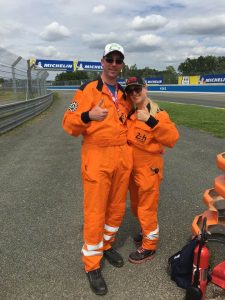 Kim – For some people, it is incredibly difficult. A few questions back, I discussed the fact that there are often not enough marshals during the week, and those of us that are there are working very long hours. This is the main reason. Not everyone can get holiday for every race. When I lived and worked in the US, I only got around 10 holiday days per year, so back then it was much more difficult for me than it is now. Now that I live in Belgium, I get over 30 holiday days a year. What a huge difference, huh?! For a race week, you never have to be at the circuit every day, but it certainly is appreciated!
Kim – For some people, it is incredibly difficult. A few questions back, I discussed the fact that there are often not enough marshals during the week, and those of us that are there are working very long hours. This is the main reason. Not everyone can get holiday for every race. When I lived and worked in the US, I only got around 10 holiday days per year, so back then it was much more difficult for me than it is now. Now that I live in Belgium, I get over 30 holiday days a year. What a huge difference, huh?! For a race week, you never have to be at the circuit every day, but it certainly is appreciated!Q7. A more difficult question for you both. Which race, where you were on call, was the most beautiful one as a marshal and why ?
“You come for the cars, you stay for the people”
Q8. People usually think of marshals being the ones waving a flag or recovering a car but what do you do during a race weekend besides waving a flag or recovering a car?
Q9. You both do 24 hour races, when there is als action at night. What things do you need to pay extra attention to, because I gather the flags won’t be seen well when it’s dark.
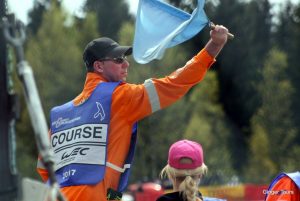 Kim – Most tracks will tell us to stop with flags after a certain hour as the drivers cannot see them so well and definitely cannot tell the difference between flags of different colors in the dark, so it is just confusing for them. At that point each track has different solutions. Some use light panels only at night (like the panels you see at F1). At Nürburgring, we use reflective boards of different colors which are very visible in the light of the headlights. And, at Le Mans, if a flag station is well lit, we use flags all night and other marshal posts have light panels. For us, as marshals, we make sure to wear lots of reflective strips on our clothes so that we are as visible as possible if we need to be on track for any reason!
Kim – Most tracks will tell us to stop with flags after a certain hour as the drivers cannot see them so well and definitely cannot tell the difference between flags of different colors in the dark, so it is just confusing for them. At that point each track has different solutions. Some use light panels only at night (like the panels you see at F1). At Nürburgring, we use reflective boards of different colors which are very visible in the light of the headlights. And, at Le Mans, if a flag station is well lit, we use flags all night and other marshal posts have light panels. For us, as marshals, we make sure to wear lots of reflective strips on our clothes so that we are as visible as possible if we need to be on track for any reason!Q10. Final question. If it were up to you both, what changes (if any) would you like to see implemented so you can do a better or easier job ?
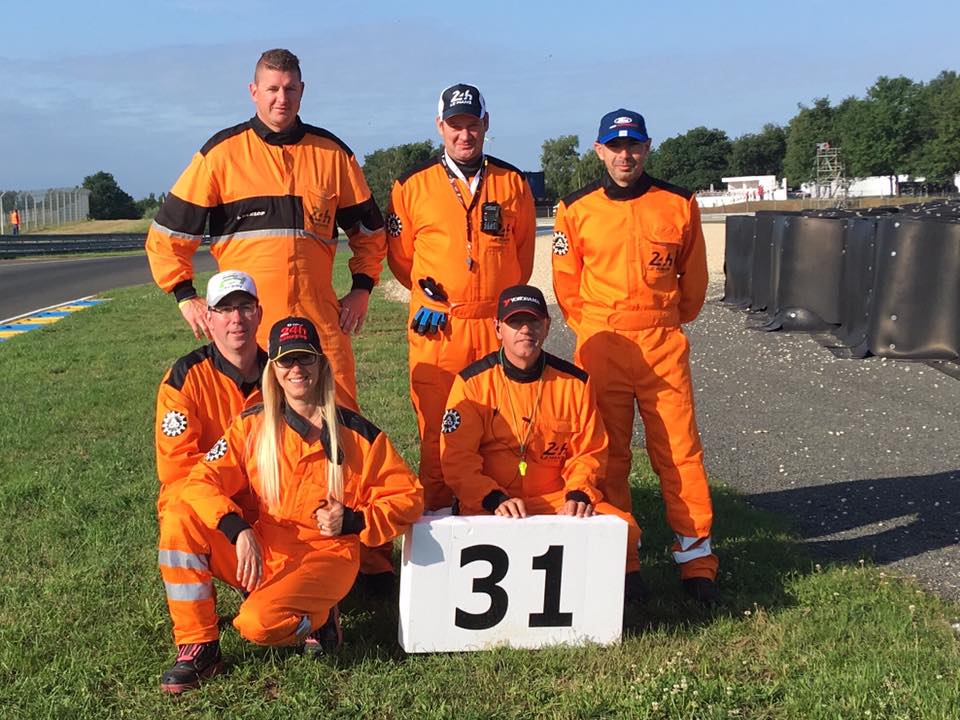
Thank you to both Kim and Rafaël for your time, hopefully it gives the readers a more in-depth of what it means to be a marshal and in the process, made the readers interested to become a marshal themselves. If you want to know more about Kim Ellis and Rafaël Slechten, or at which track they are working, follow them on Twitter. Kim – www.twitter.com/rttfm and Rafaël – www.twitter.com/AmbuRaf.
Do you want to follow motorsport news? Follow MsportXtra on Twitter!
Did you get a feeling of what it is to be a marshal and would you like to be one yourself one day? You can best start locally, for the Dutchies this means Zandvoort or Assen would be your best shot. Just subscribe and start from there.
“Recruiting youngsters seems one of the biggest challenges”
